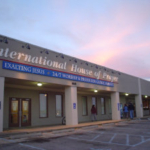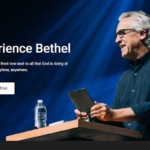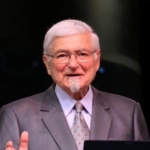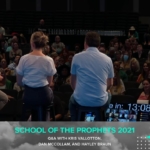2022.04.26 新しい教え
参考リソース
参考サイト
新使徒運動(NAR)について参考になるサイト
-
真理のみことば伝道協会(https://cult-sos.net/)
- カルト問題の専門家ウィリアム・ウッド氏の団体。
-
村上密Blog(https://maranatha.exblog.jp)
- 村上氏は、古典的ペンテコステ派の立場から新使徒運動や繁栄の神学に警鐘を鳴らしている。
-
Spirit of Error(http://www.spiritoferror.org/)
- 新使徒運動(NAR)の専門家Holly Pivec氏のブログ。タルボット大学のR. Douglas Geivett教授との共著による2冊の著作があり、情報源として信頼性が高い。
- Critical Issues Commentary(https://www.cicministry.org/)
- NARWatch Israel(https://www.narwatchisrael.info/)
- Church Watch Central(https://churchwatchcentral.com/)
- Apologetics Index(http://www.apologeticsindex.org/)
- Descption in the Church(http://www.deceptioninthechurch.com/)
- Messed Up Church(https://www.themessedupchurch.com/)
現代の使徒運動に対する専門家の言葉
ビンソン・サイナン(Vinson Synan)
教会史の専門家であるペンテコステ派の神学者ビンソン・サイナン(1934年~。リージェント大学神学部教授)は次のように語っています。
自称使徒について
「自分は使徒だと主張する人はおそらく使徒ではない」ということは自明の公理である。使徒は、自分でなるものでも、教会に選ばれるものでもなく、主ご自身によって選ばれるものだからである。
― Vinson Synan, “Who Are the Modern Apostles?”, Ministries Today (March-April 1992), p. 47It is axiomatic to say that anyone who claims to be an apostle probably is not one. An apostle is not self-appointed or elected by any ecclesiastical body, but is chosen by the Lord Himself.
参照聖句
「使徒となったパウロ──私が使徒となったのは、人間から出たことでなく、また人間の手を通したことでもなく、イエス・キリストと、キリストを死者の中からよみがえらせた父なる神によったのです──」(ガラテヤ1:1、新改訳)
使徒の権威について
私は初めから、教会内で最高の権威をだれにもチェックされずに行使する使徒職の回復を主張する運動には警戒をしていた。その権威が乱用される危険性があまりにも大きいからである。教会史を通して、教会に使徒職を回復しようとする試みは何度もあったが、異端に走ったり、大きな災いをもたらしたりする結果になることが多かった。
― Vinson Synan, An Eyewitness Remembers the Century of the Holy Spirit (Baker Publishing Group, 2010), p.183 (Kindle 版)From the outset, I was concerned about any movement that claims to restore apostolic offices that exercise ultimate and unchecked authority in churches. The potential for abuse is enormous. Throughout church history, attempts to restore apostle as an office in the church have often ended up in heresy or caused incredible pain.
歴史上で使徒職の回復を主張した人々について
自分は使徒であると主張した人々は低い評価しか受けていなかったにもかかわらず、使徒職が今も継承されているという考え方は、教会史の中でたびたび現れた。たとえば、3世紀にマニ教を創始したペルシャのマニ(紀元216~274年)は、みずからのことを「光の使徒」と呼んだ。マニは、自分はイエス・キリストの使徒で、地上に現れる最後の使徒であると語っていた。二元論的な信仰によって教会から異端として退けられたマニのように、教会史上で自分は新たな使徒だと主張したほとんどの人は異端の烙印を押され、教会から破門された。事実、ムハンマドもみずからのことを最後の使徒であり、永遠の預言者であると主張した。そのほかにも、英国のアービング派や、アメリカのモルモン教など、いわゆる終末時代の使徒と呼ばれる人々もここ何世紀かに現れた。しかし、こうしたみずからを使徒と名乗る人々は、主流派のキリスト教から退けられてきた。
― Vinson Synan, An Eyewitness Remembers the Century of the Holy Spirit (Baker Publishing Group, 2010), p.174 (Kindle 版)In spite of the low esteem shown to those who claimed to be apostles, the idea of a continuing apostleship continued to surface sporadically throughout church history. For example, Mani of Persia (a.d. 216–274), founder of the Manichee sect in the third century, called himself the “Apostle of Light.” He said he was the last apostle of Jesus Christ who would ever appear. Like Mani, whose dualistic religion was rejected by the Church as heretical, most people in Church history who claimed to be new apostles have been branded as heretics and excommunicated from the Church. In fact, Mohammad also claimed to be the last apostle and prophet for all time. Other so-called end-time apostles, such as the Irvingites in Britain and the Mormons in America, have appeared over the centuries. But these self-proclaimed apostles have been rejected by mainstream Christianity.
ウェイン・グルーデム(Wayne Grudem)
カリスマ派の著名な神学者、ウェイン・グルーデム(1948年~。米フェニックス神学校教授、元トリニティー神学校教授)は次のように語っています。
現代に使徒はいない
今では復活したキリストをこの目で見たと証言できる者は誰もいないのだから、今日に使徒は存在しない。
― Wayne Grudem, Systematic Theology (Zondervan, 1994), p.911since no one today can meet the qualification of having seen the risen Christ with his own eyes, there are no apostles today.
参照聖句
パウロは、自分が使徒であることの根拠として「主イエスを見た」ことを挙げています。「私には自由がないでしょうか。私は使徒ではないのでしょうか。私は私たちの主イエスを見たのではないでしょうか。あなたがたは、主にあって私の働きの実ではありませんか」(1コリント9:1、新改訳)
教会史の証言
特筆に値するのは、教会史の中の偉大な指導者はだれも、アタナシウスもアウグスティヌスも、ルターもカルバンも、ウェスレーもホイットフィールドも、自分のことを「使徒」と名乗ることはなかったし、周りが自分を使徒と呼ぶことを許すこともなかったという点である。近現代に自分を「使徒」と呼ぶ人があれば、その人は高ぶりやうぬぼれ、また人が受けるにふさわしいよりもはるかに大きい教会内の権威を得たいという、行きすぎた野心と欲望に突き動かされているとすぐに疑われることになる。
― Wayne Grudem, Systematic Theology (Zondervan, 1994), P. 911It is noteworthy that no major leader in the history of the church—not Athanasius or Augustine, not Luther or Calvin, not Wesley or Whitefield—has taken to himself the title of “apostle” or let himself be called an apostle. If any in modern times want to take the title “apostle” to themselves, they immediately raise the suspicion that they may be motivated by inappropriate pride and desires for self-exaltation, along with excessive ambition and a desire for much more authority in the church than any one person should rightfully have.
ジョン・マッカーサー(John MacArthur)
米国の福音派神学者ジョン・マッカーサー(グレースコミュニティー教会)は次のように語っています。
C・ピーター・ワグナーの「新しい使徒的宗教改革(NAR)」という用語について
この運動を「宗教改革」と呼ぶことには語弊がある。実際のところ、宗教改革は、第一義的には教皇が主張していた使徒の権威に反対する運動であった。さらに、宗教改革の基本原則は「聖書のみ」に従うということであったが、ワグナーの見解はこの原則に真っ向から反対するものである。ワグナーは「宗教の霊」を悪霊として定義した後、「(この霊は)宗教的指導者が、聖霊が今語っていること(現在形)ではなく、聖霊が前の時代に語ったこと(過去形)に集中するように仕向けている」と論じている。つまり、ワグナーによると、前の時代に聖霊が語ったこと(聖書)だけを見ている人は、悪霊の影響の下にいることになる。
― John F. MacArthur, Strange Fire (Thomas Nelson, 2013), p.90-91 (Kindle 版)It is equally misleading to refer to it as a “reformation.” In fact, the Reformation was primarily a reaction against the self-proclaimed apostolic authority of the pope. Moreover, the fundamental principle of the Reformation was a commitment to Scripture alone—a concept to which Wagner’s view is emphatically and diametrically opposed. After defining “the spirit of religion” as demonic, Wagner argues that “it causes religious leaders to concentrate not on what the Spirit is saying (present tense), but on what the Spirit said (past tense) in a former season.” In other words, according to Wagner, those who look solely to that which the Spirit said in a former season (i.e., the Bible) are under demonic influence!
新約時代の直後に生きた教会教父は、使徒の時代は終わったと証言している
教会史にもう一度目をやり、新約時代の直後に生きた教会指導者の証言を見てみると、初期の教会教父は、自分たちのことを使徒とは考えず、「使徒たちの弟子」であると考えていた。教会教父は、使徒のことを唯一無二の存在と認識しており、使徒の時代が終わった後、教会は長老(牧師と司教を含む)と執事によって治められていた。紀元90年代に、ローマのクレメンスは、使徒たちはみずからの働きの「初穂を、その後に信じる者たちのために、司教や執事に任命した」と書き記している。同じくイグナティウス(紀元35~115年)は、アンテオケ人への書簡の中で自分は使徒ではないと語り、こう記している。「私は、自分が使徒であるかのように、こうした点について命じることはしません。ただ、同じ主にあるしもべとして、こうしたことを思い出させようとしているのです」
― John MacArthur, Strange Fire (Thomas Nelson, 2013), p.98 (Kindle 版)When we look again at church history—considering the testimony of those church leaders who lived shortly after the New Testament age ended—we find that the earliest church fathers did not view themselves as apostles, but rather as the “disciples of the apostles.” They understood the apostles were unique, and that after the apostolic age ended, the church was governed by elders (including pastors or bishops) and deacons. Clement of Rome, writing in the 90s, stated that the apostles “appointed the first-fruits” of their labors “to be bishops and deacons of those who would afterwards believe.” Ignatius (c. AD 35–115) similarly clarified in his Epistle to the Antiochians that he was not an apostle. He wrote, “I do not issue commands on these points as if I were an apostle; but, as your fellow-servant, I put you in mind of them.”





